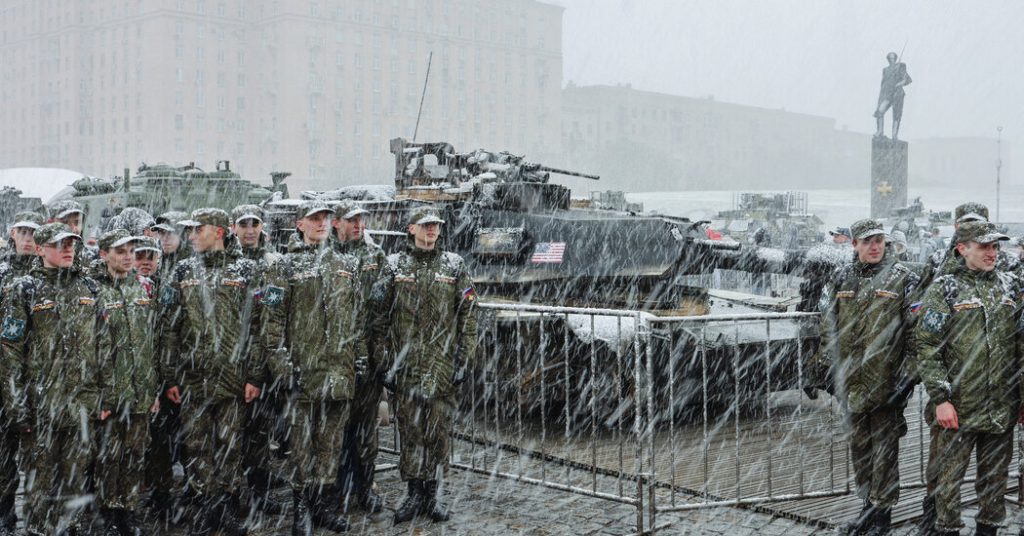The word “victory” is pervasive in Moscow, with displays of it on LED screens, flags, and exhibits. This messaging aligns with President Vladimir Putin’s efforts to project an image of triumph amid his electoral success and military advances in Ukraine. The country recently marked Victory Day, celebrating its Soviet involvement in defeating Nazi Germany during World War II. Over the years, many Russians have become accustomed to the ongoing conflict in Ukraine, with some embracing the idea of eventual victory in the face of perceived Western threats.
The economic impact of Western sanctions on Russia has been minimal, while military developments in Ukraine have been portrayed as positive by state media. Despite ongoing casualties, the narrative of a resolute Russia facing external threats has resonated with many citizens. The display of captured Western military equipment in Moscow symbolizes Russia’s perceived global struggle, with visitors expressing pride and solidarity with the country’s efforts. The bravado exhibited by Russians reflects their confidence in Putin’s leadership during turbulent times.
Putin’s recent inauguration was marked by approval from the Russian Orthodox Church leaders, endorsing his continued rule. Public support for the army’s actions in Ukraine remains strong, with dissenting voices repressed or silenced. The resilience of Russian society in the face of international pressure and conflict has led to a sense of unity around the government’s agenda. As Putin consolidates power and maintains popular backing, the idea of him remaining in office for an extended period seems increasingly plausible.
Critics of the government express concerns about the lack of viable alternatives to Putin and the suppression of dissenting voices. Some citizens fear that any meaningful change in Russia’s political landscape may only come after Putin’s eventual demise. With opposition figures like Aleksei Navalny facing persecution and possible government interference, dissenting voices struggle to find a platform. The prospect of a future without Putin raises questions about the country’s stability and direction.
Despite tragedies such as terrorist attacks and ongoing conflicts, many Russians express unwavering support for Putin as a guarantor of stability. The belief in Putin’s leadership capabilities and determination to protect the nation from external threats remains strong among diverse segments of society. As Russia grapples with challenges on multiple fronts, including economic sanctions and military engagements, the figure of Putin looms large as a symbol of continuity and strength. The political landscape in Russia continues to evolve under the influence of ongoing conflicts and domestic policies.


